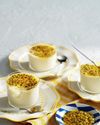
The young bride stepped out of a London church on a frigid February day in 1891. She shivered in her ivory gown of satin and old lace as she paused on the cold stone steps. The damp end of winter was not a romantic time to wed.
She had little time to linger. Within hours, she was on a train with her middle-aged husband to his Berlin home. Miss Beauchamp, a merchant’s daughter, was now the Countess von Arnim.
The 24-year-old had already travelled far from her Australian birthplace. She would travel much further. She would beguile high-society and become an international literary sensation known today as Elizabeth von Arnim.
Although barely 1.5 metres tall – at first glance she was often mistaken for a child – Elizabeth had a formidable presence with blue eyes as penetrating as her wit.
“When one meets her, inevitably she suggests Dresden China, with her tiny voice, tiny hands, tiny manners. And then suddenly, with a shock, you realise that the Dresden China is hollow, and is filled with gunpowder,” author Beverley Nichols wrote of her. Elizabeth created around her the atmosphere of a court at which her friends were either in favour or disgrace. She could be kind and cruel. She was a mix of dove and serpent, her father once noted.
Elizabeth would draw into her orbit aristocrats and artists, among them writer H.G. Wells, with whom it was rumoured she had a tempestuous affair. But she would know deep despair and flee for her life in the face of domestic cruelty and political tyranny.
Denne historien er fra July 2021-utgaven av The Australian Women's Weekly.
Start din 7-dagers gratis prøveperiode på Magzter GOLD for å få tilgang til tusenvis av utvalgte premiumhistorier og 9000+ magasiner og aviser.
Allerede abonnent ? Logg på
Denne historien er fra July 2021-utgaven av The Australian Women's Weekly.
Start din 7-dagers gratis prøveperiode på Magzter GOLD for å få tilgang til tusenvis av utvalgte premiumhistorier og 9000+ magasiner og aviser.
Allerede abonnent? Logg på

Maggie's kitchen
Maggie Beer's delicious veg patties - perfect for lunch, dinner or a snack - plus a simple nostalgic pudding with fresh passionfruit.

Reclaim your brain
Attention span short? Thoughts foggy? Memory full of gaps? Brigid Moss investigates the latest ways to sharpen your thinking.

The girls from Oz
Melbourne music teacher Judith Curphey challenged the patriarchy when she started Australia's first all-girls choir. Forty years later that bold vision has 6500 members, life-changing programs and a new branch of the sisterhood in Singapore.

One kid can change the world
In 2018, 10-year-old Jack Berne started A Fiver for a Farmer to raise funds for drought relief. He and mum Prue share what happened next.

AFTER THE WAVE
Twenty years ago, the Boxing Day tsunami tore across the Indian Ocean, shredding towns, villages and holiday resorts, and killing hundreds of thousands of people from Indonesia to Africa. Three Australians share their memories of terror, loss and survival with The Weekly.

PATRICIA KARVELAS How childhood tragedy shaped me
Patricia Karvelas hustled hard to chase her dreams, but it wasn't easy. In a deeply personal interview, the ABC host talks about family loss, finding love, battles fought and motherhood.

Ripe for the picking
Buy a kilo or two of fresh Australian apricots because they're at their peak sweetness now and take inspiration from our lush recipe ideas that showcase this divine stone fruit.

Your stars for 2025
The Weekly’s astrologer, Lilith Rocha, reveals what’s in store for your astrological sign in 2025. For your monthly horoscope, turn to page 192.

MEL SCHILLING Cancer made me look at myself differently'
One year on from going public with her bowel cancer diagnosis, Mel Schilling reveals where she's at with her health journey and how it's changed her irrevocably.

Nothing like this Dame Judi
A few weeks before her 90th birthday, the acting legend jumped on a phone call with The Weekly to talk about her extraordinary life – and what’s still to come.